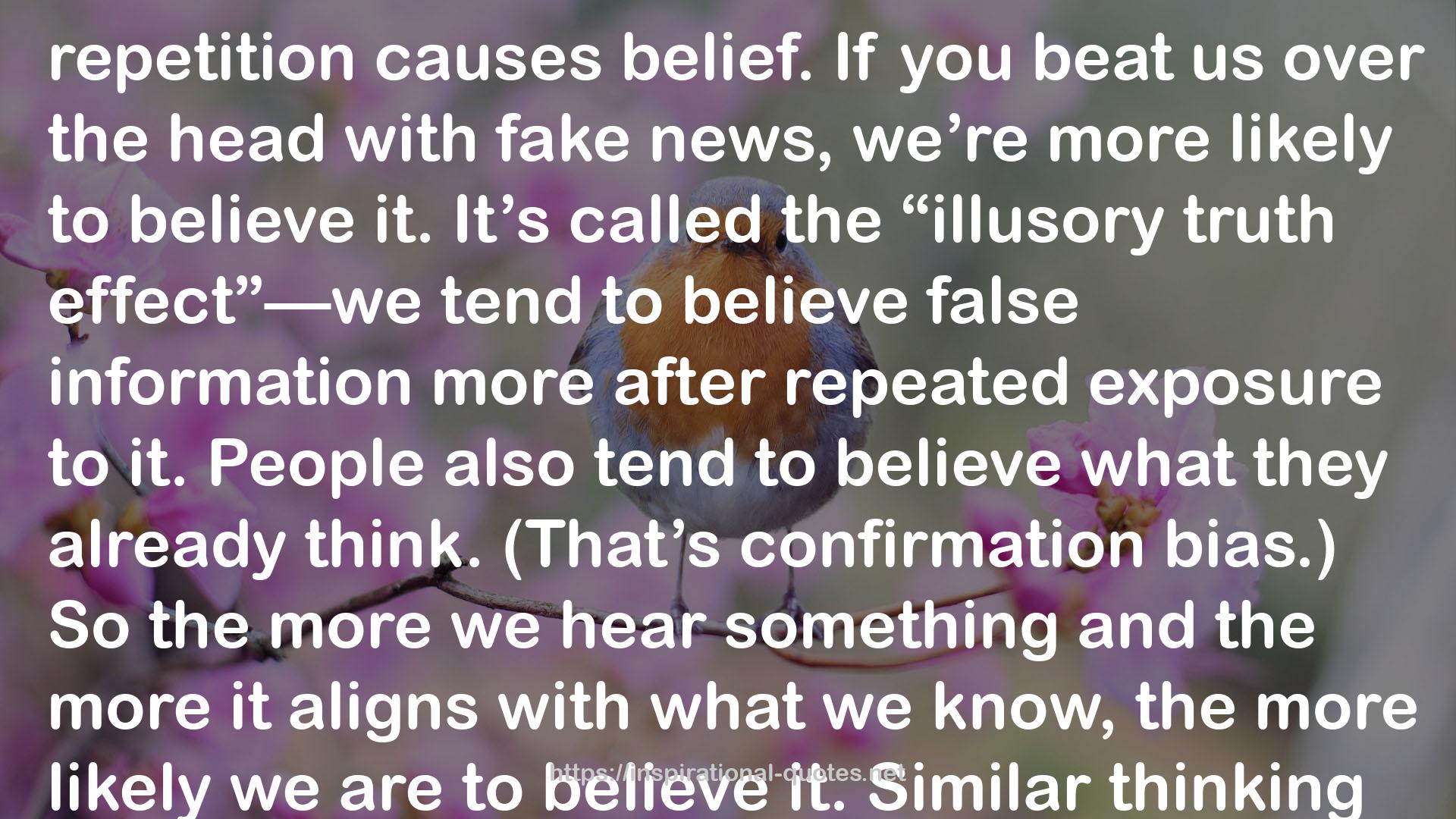" repetition causes belief. If you beat us over the head with fake news, we’re more likely to believe it. It’s called the “illusory truth effect”—we tend to believe false information more after repeated exposure to it. People also tend to believe what they already think. (That’s confirmation bias.) So the more we hear something and the more it aligns with what we know, the more likely we are to believe it. Similar thinking has led some cognitive and political scientists to hypothesize that because of confirmation bias, corrective information can backfire—that trying to convince someone that their falsely held belief is wrong actually causes them to dig in to those false beliefs even more. "
― , The Hype Machine: How Social Media Disrupts Our Elections, Our Economy, and Our Health--And How We Must Adapt
